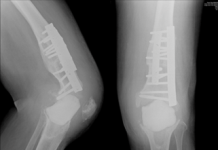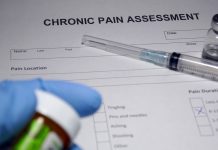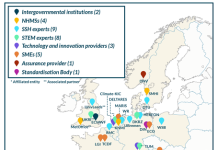Scientific stakeholder and demand analysis for the establishment of a health centre in the Donnersberg district, ensuring a successful implementation the services of health promotion
Supply shortages in rural regions, long waiting times for therapy places and the demographic change call for the development of new structures for the promotion of mental health. New supply models with multi-modal approaches and a networking of the service providers are required. For this reason, “Pfalzklinikum for Psychiatry and Neurology” and Westpfalz-Klinikum have developed a concept for a common, cross-sectoral health center according to the motto “Health needs diversity, participation and resilience”. The aim is to build up newly networked offers, wisely use interfaces of somatic and psychiatric care and sustainably promote health in rural areas. The population is to benefit from short distances due to direct networking and communication between hospitals, registered doctors, care providers and follow-up care facilities. Programmes for the prevention of mental disorders and the promotion of mental health are of major importance for the state of health of a population. Thus, “Pfalzklinikum for Psychiatry and Neurology” strengthens its role as a preventively operating, regional health service provider.
Survey as a basis for new offers
The conceptual development is, among others, based on an empirical study carried out by the author in the form of representative, qualitative expert interviews. Its aim was to determine the expectations and the demand for preventive mental health offers expressed by experts and persons living in the Donnersberg District. During the empirical investigation relevant stakeholders and important experts were identified with the objective to gather and use their knowledge. The persons to be interviewed were selected by so-called theoretical sampling, i.e. a random sample of people who are, according to the author’s opinion, able to make qualified statements on the need.
Due to the exchange of ideas with the experts and stakeholders, the planning and the aims of the health center and, thus, the intended change in perspective in the Donnersberg District could be communicated. The evaluation of the responses to the qualitative, guideline-based interviews has yielded valuable insights. On this basis, the health-center project group can develop programmes and services tailored to the population’s needs.
Significance of information
All interviewees emphasised the importance of public relations work, either as a measure of primary, secondary or tertiary prevention, in terms of provision and transfer of information. Independently from each other, the experts agree that it is necessary to better inform the population about health topics and existing offers – also for the purpose of reducing the psychological barrier to seek help. To this end, for instance events concerning health issues and mental disorders are particularly suitable. Furthermore, the experts’ statements confirm the existing difficulty in providing medical care for people living in rural areas and, as assumed by the project group, the demand for mobile offers that should be provided in addition to the offers in the premises of the health center. It is for example possible to provide mobile day-care services.
The results of the survey also show that the focus is on offers for the elderly. Pfalzklinikum and Westpfalz-Klinik plan, among others, to extend and bundle their geriatric and geronto-psychiatric areas, for instance by offering a joint geriatric outpatient department.
New focus on prevention
The interviewees’ statements show that there is a great demand for the prevention of mental disorders and the promotion of mental health. For this reason, a major objective of the health center is to convince the public of the necessity and meaningfulness of turning away from a care-orientated to a prevention-orientated perspective on mental health.
To ensure a successful implementation, the services of health promotion have to be oriented to people’s life worlds and daily life and health equity has to be promoted. The population has to be involved in this process on a participatory base. If the planned services of the health center are actively used by the population, individual resilience, i.e. the individuals’ ability to recover from crises, organisational resilience (e.g. in the company) and local resilience (population in the Donnersberg District) can be promoted and empowerment processes can be triggered.
Care models such as the health center with offers to promote mental health and prevent mental disorders should be established in other regions. This is the only possibility to reduce the number of people suffering from mental disorders. Such care models should focus on people’s health resources and on the stabilisation of their health and rather less on risk factors and hazards to health. The change in perspective from disease to health orientation shall prevent or delay mental disorders and have a positive impact on the course of diseases. A holistic and sustainable service preparation is, thus, required to cover the broad range of the population’s needs.
With regard to the interview results, it would be possible to devise health center offers aiming at the following targets:
- Support for the creation of health-promoting life worlds: The offers could support or enable people to create good working and living conditions and, in case of problems, empower the persons concerned in dealing with their social environment and their resources and skills (empowerment approach).
- Support of health-related community actions: The offers could aim at the health promotion of the community, such as support of community activities, self-help programs and social networks for the promotion of self-determination and autonomy over one’s own health issues.
- Personal capabilities: Due to public relations work on the part of the health center and offers to strengthen social skills as well as the development of one’s own personality people could be empowered for lifelong learning and get support to cope better with difficult phases in their lives and mental disorders.
- Sustainability: The offers of the health center can make a contribution to the long-term preservation of the mental health and the skills and resources of the persons to be supported.
- Participation: By means of a health center and its services it is possible to create structural pre-requisites to facilitate health promotion and the prevention of mental disorders at any age, in all situations and all areas of life with the participation of the individual, the family and the community.
Due to the selection of experts, a sufficient number of contact persons from different stakeholder groups were granted. In this way, the selection of the study population led to sufficient perspectives, and new findings could be gathered. The empirical examination gives information about further research possibilities which might build upon the results of this study. In future, the prevention approach has to be linked to the care approach to enable unbroken counselling and care of persons suffering from mental disorders or crises.
www.pfalzklinikum.de
Written by Lena Kuhn, Pfalzklinikum AdöR








